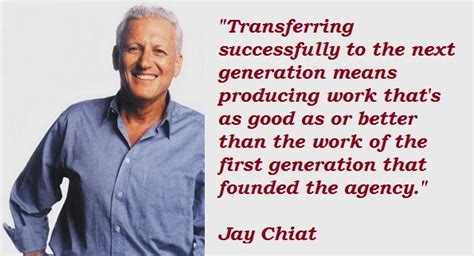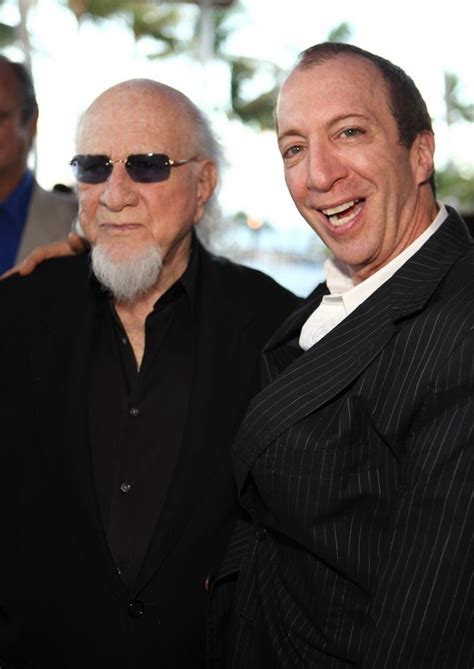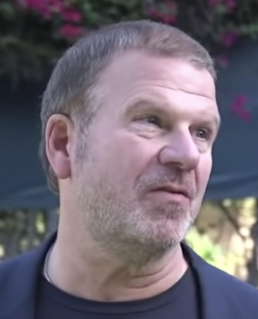A Quote by Beth Ditto
The thing about being on the majors, from the beginning, going into this, I was like, "I'm not going to be treated like a factory," because that's never the way it was done before. You're talking about a major label, we're talking about serious business; you're not an artist anymore, you're a business, you have to work in terms of product, you have to release a product, and I don't really think that way at all.
Related Quotes
I believe that we will see cases like these that will continue because we're talking about companies that are doing business with a tyranny and a dictatorship. And when they do business with a dictatorship, a tyranny, they will have problems like this. This, I believe, is the beginning of several problems that there will be over the next few years because we are talking about American companies that now want to get cozy with this regime, and they will find themselves in very serious problems such as those we're seeing at this time with the Carnival Company.
We don't like to use the phrase "state security" in the United States because it reminds us of all the bad regimes. But it's a key concept, because when these officials are out on TV, they're not talking about what's good for you. They're not talking about what's good for business. They're not talking about what's good for society. They're talking about the protection and perpetuation of a national state system.
I never had a doubt about wanting to be an actress, but certainly when there were periods of unemployment, I would think, "Oh, I'm never going to work again." The only thing I don't like about it is the business part of it - the negotiating and all this stuff that you don't learn in school. I'm not good with business.
I've tried to get better about weighing what I think the accessibility of an idea is against the cost of executing it. I've tried to be smarter about that, because if you're not smart about that, you're going to be unemployed. But I'm still mystified about what works for people. And I'm not talking about my movies, I'm talking in general. I'm mystified by the stuff that doesn't work. I'm mystified by what's going on in the critical side, too.
I think for us, we don't feel like the future of music is in the act of being a record company. We feel like the future of the music business is in empowering artists to have better and better tools to communicate with their fans. We want to be people who are saying to artists, "Look, you don't need that company over there to release your album. You can do it this way." Almost more of a band partnership than a label-artist relationship. Not about ownership of content, but about empowerment.
She [Hillary Clinton] knows the people well. I think there is - you know, also talking about breaking down barriers and talking about that, whether we`re talking about that in economic terms. I mean, she`s the only person who has been out there talking about white privilege and talking about sort of the intersectionality of some of these issues.
For years, people have been trying to talk to me about doing a show, and I wouldn't do one because I'm a serious business guy. I'm not going to do a stupid show. So, the opportunity came up with CNBC, and we started talking. It became a real business show. It's educational, people watch it, and it's great for small business.
The problem is there's a new group. I'm talking about this tiny slice of people that have gotten way too fired up about the Trump thing for the wrong reasons. I'm talking about these people that as soon as Trump won, they're like, we don't have to pretend like we're not racist anymore. We don't have to pretend anymore. We can be racist again. Whoa, whoa, whoa, no, no. If you're one of these people, please go back to pretending.
My first album was mainly dealing with street issues, and it was 'coded': it was called 'Reasonable Doubt.' So the things I was talking about... I was talking about in slang, and it was something that people in the music business was not really privy to. They didn't understand totally what I was saying or what I was talking about.
The smart way to build a literary career is you create an identifiable product, then reliably produce that product so people know what they are going to get. That's the smart way to build a career, but not the fun way. Maybe you can think about being less successful and happier. That's an option, too.
It's something that I love about this business and that scares me about this business, but in a good way. You just never know what's going to happen. And things change constantly. But there's always opportunities for new work, so you just have to enjoy the job that you're on while you're on it because it doesn't last forever.




































